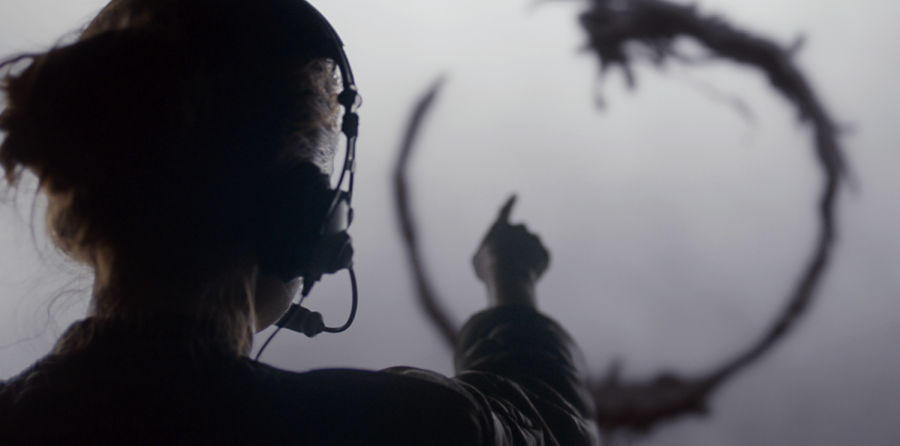Movie Review: An Analysis of Arrival
March 21, 2021
“But now I’m not so sure I believe in beginnings and endings. There are days that define your story beyond your life. Like the day they arrived.”
The film Arrival (2016) follows Louise (Amy Addams), a linguistics professor leading a team of investigators to understand an alien race after giant pods touch down at 12 different locations around the world. In a race against time and war, she and her team need to learn the purpose of their arrival before global tensions boil over. Arrival offers a classic “what-if” science fiction narrative that completely bends our perspective of humanity, our reactionary tendencies, and how we communicate.
Arrival opens with the knowledge that there are extra terrestrial beings making contact with earth through an untranslatable language. The first 40 minutes of the film hold tension with an iron grip, perfectly translating the initial reactions of the global community. The main character Louise is very intelligent, often being the only woman in the room, and is rarely not in the center of frame. This was done deliberately by director Denis Villeneuve, to put the viewer in the headspace of the protagonist and her fluctuating understanding. Just when it’s believed she’s made a breakthrough, another finding is unearthed, changing her perspective entirely. The audience has to stay with her in order for the viewers and Louise to discover the answers simultaneously, furthering the understanding of her, and the choices she has to make.
Though the geographical reasoning in the 12 destinations of each of the pods is generally unknown, each country that has a vessel in their backyard comes together at first to share their scientific findings. As China and Russia stray from discovery to domestic defense, they go radio-silent, which prompts all the other countries to do the same. This is an interesting take on the stance of global power, given the political climate over the last decade. China and other world powers all believe that the beings will become violent at some point, and are not willing to wait to find out.
In reaction to the little information shared by the government, and the mobilization in the east, the general public goes into a frenzy, much like what we all saw at the beginning of the coronavirus breakout in America. This begs the question, how often do we jump the gun when it comes to global politics solely due to impatience and lack of trust in our leaders?
The script is meticulous in its scientific explanations, with a three minute montage describing the teams methods and conclusions about the aliens. Without spoiling too much, the aliens (heptapods) communicate through a coffee ring like language, where each symbol represents meaning, not sound. The language is also non linear, meaning they need to know every word in the sentence they want to convey before they write it.
Through this, director Denis Villeneuve offers the audience the chance to look introspectively, like all good sci-fi movies do. How and why do humans think linearly? Why is our language phonetic, and not meaning based as well?
The movie jumps around in time, mimicking the heptapods cognitive process while taking Louise along with it. Villeneuve presents the essential question, “If you could see your whole life, from start to finish, would you change things?” I can’t explain much further without completely giving the ending away, but I highly recommend this film to those who like to speculate the ending before it has begun.
I give this movie a 10/10.





Victoria Quintana • Mar 26, 2021 at 11:41 am
I loved this movie too! Your analysis was very insightful and thought provoking. Might have to watch it again this weekend 🙂
Sydney Harrell • Mar 24, 2021 at 1:56 pm
man this movie sounds so interesting, and the way you described the plot…awesome. Arrival sounds so intense and engaging, and i love how you showed how much meaning can be taken from it and translated into our world. sounds like a great movie, and sounds like i might have to watch it soon!!